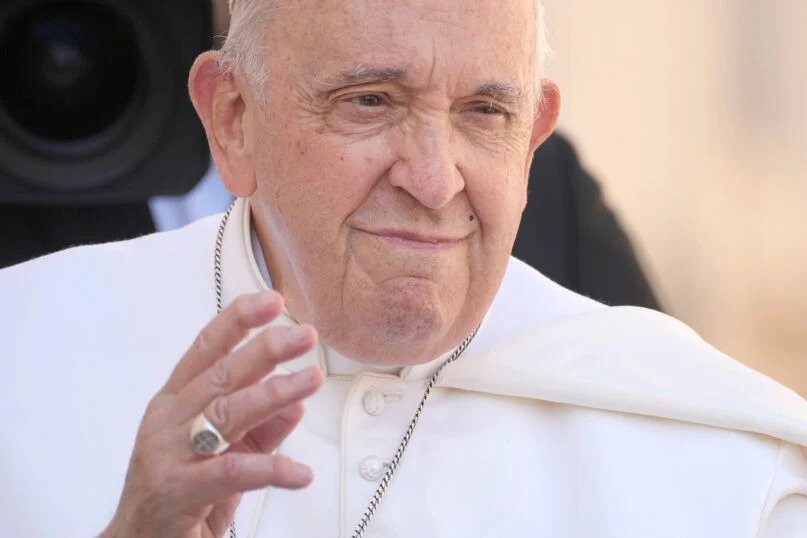Pope Francis clears way for women and lay Catholics to vote in upcoming bishops' meeting

Pope Francis arrives in St. Peter's Square at the Vatican on April 22. (AP Photo/Gregorio Borgia)
In a series of changes to the upcoming Synod of Bishops on Synodality announced Wednesday, Pope Francis cleared the way for lay women and men to participate as voting members.
Five men and five women from religious orders will also be added to the assembly and will be given the power to vote on resolutions.
The new voting members will replace auditors, or nonvoting participants, of the synod, the Vatican announced. “Instead, an additional 70 non-bishop members have been added who represent various groupings of the faithful of the People of God (priests, consecrated women, deacons, lay faithful) and who come from the local churches,” the Vatican said.




